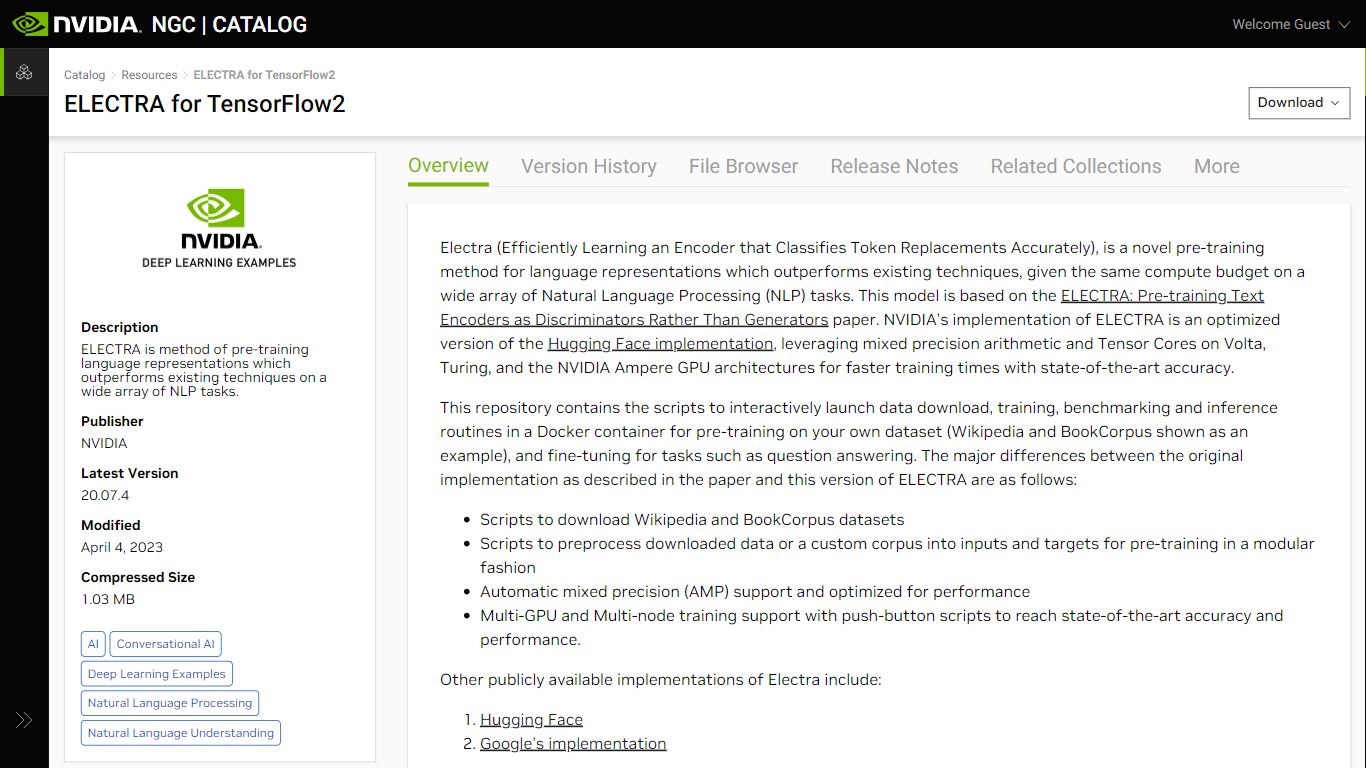ELECTRA vs GPT-4
In the battle of ELECTRA vs GPT-4, which AI Large Language Model (LLM) tool comes out on top? We compare reviews, pricing, alternatives, upvotes, features, and more.
Between ELECTRA and GPT-4, which one is superior?
Upon comparing ELECTRA with GPT-4, which are both AI-powered large language model (llm) tools, The upvote count shows a clear preference for GPT-4. GPT-4 has attracted 9 upvotes from aitools.fyi users, and ELECTRA has attracted 6 upvotes.
Does the result make you go "hmm"? Cast your vote and turn that frown upside down!
ELECTRA

What is ELECTRA?
ELECTRA for TensorFlow2, available on NVIDIA NGC, represents a breakthrough in pre-training language representation for Natural Language Processing (NLP) tasks. By efficiently learning an encoder that classifies token replacements accurately, ELECTRA surpasses existing methods within the same computational budget across various NLP applications. Developed on the basis of a research paper, this model benefits significantly from the optimizations provided by NVIDIA, such as mixed precision arithmetic and Tensor Core utilizations onboard Volta, Turing, and NVIDIA Ampere GPU architectures. It not only achieves faster training times but also ensures state-of-the-art accuracy.
Understanding the architecture, ELECTRA differs from conventional models like BERT by introducing a generator-discriminator framework that identifies token replacements more efficiently—an approach inspired by generative adversarial networks (GANs). This implementation is user-friendly, offering scripts for data download, preprocessing, training, benchmarking, and inference, making it easier for researchers to work with custom datasets and fine-tune on tasks including question answering.
GPT-4

What is GPT-4?
GPT-4 is the latest milestone in OpenAI’s effort in scaling up deep learning.
GPT-4 is a large multimodal model (accepting image and text inputs, emitting text outputs) that, while less capable than humans in many real-world scenarios, exhibits human-level performance on various professional and academic benchmarks. For example, it passes a simulated bar exam with a score around the top 10% of test takers; in contrast, GPT-3.5’s score was around the bottom 10%. We’ve spent 6 months iteratively aligning GPT-4 using lessons from our adversarial testing program as well as ChatGPT, resulting in our best-ever results (though far from perfect) on factuality, steerability, and refusing to go outside of guardrails.
GPT-4 is more creative and collaborative than ever before. It can generate, edit, and iterate with users on creative and technical writing tasks, such as composing songs, writing screenplays, or learning a user’s writing style.
ELECTRA Upvotes
GPT-4 Upvotes
ELECTRA Top Features
Mixed Precision Support: Enhanced training speed using mixed precision arithmetic on compatible NVIDIA GPU architectures.
Multi-GPU and Multi-Node Training: Supports distributed training across multiple GPUs and nodes, facilitating faster model development.
Pre-training and Fine-tuning Scripts: Includes scripts to download and preprocess datasets, enabling easy setup for pre-training and fine-tuning processes., -
Advanced Model Architecture: Integrates a generator-discriminator scheme for more effective learning of language representations.
Optimized Performance: Leverages optimizations for the Tensor Cores and Automatic Mixed Precision (AMP) for accelerated model training.
GPT-4 Top Features
No top features listedELECTRA Category
- Large Language Model (LLM)
GPT-4 Category
- Large Language Model (LLM)
ELECTRA Pricing Type
- Freemium
GPT-4 Pricing Type
- Freemium
